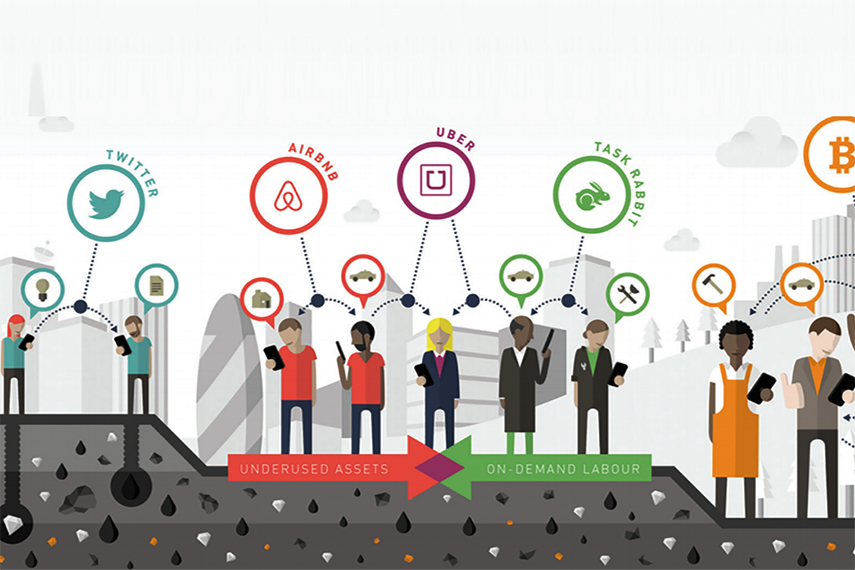
We are already facing a paradigm shift as far as our economy and modes of consumption are concerned. Not all of us are aware of the term and its implications – but regardless, we can definitely feel its effects.
Table of Contents
This article will attempt to simplify the concept of the online marketplace, its global impact, and bring to light certain facts and features so that entrepreneurs understand why it is important to engage with it.
The marketplace economy is attracting more than 22.4 million consumers annually and $57.6 billion in spending. The largest category of marketplace spending is online marketplaces (e.g. Ebay, Etsy), with 16.3 million consumers each month spending almost $36 billion annually. Transportation (e.g. Uber, Lyft) comes in second with 7.3 million monthly consumers and $5.6 billion in annual spending, followed by food/grocery delivery (e.g. Instacart) at 5.5 million monthly consumers and $4.6 billion annual spending. Other marketplace services including home services (e.g. TaskRabbit), freelancer services (e.g. Elance), and health and beauty services (e.g. StyleSeat) account for $8.1 billion in spending each year, and all other marketplace activity comes in at $3.8 billion.
The term ‘online marketplace’ has been hotly debated. Some call it the ‘access’ economy, some term it the ‘Uber’ model and so on – the point remains, that it deviates from standard economic models. How exactly? Put simply, it redefines the need for ownership.
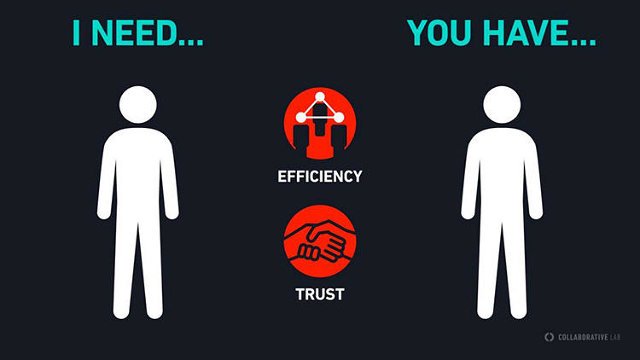
There haven’t been many surveys or studies that cover the characteristics of the online marketplaces in India – however, we do have ample evidence from the ones conducted in the United States. Overwhelmingly, consumers are realizing that owning is rather cumbersome and clutter-oriented. Instead, they prefer access – mostly time saving, instant access that can get the job done instead of you taking care of the infrastructure.
Take a simple example – cars are the best, since Uber’s domination is something we all have come to acknowledge and understand. These were once signs and symbols of status, bearing considerable cost to maintain and purchase – yet, according to a PWC study, 8% of all adults in the US have been part of the sharing automotive economy. Meaning, they’ve all basically used an Uber or equivalent at some point, choosing mobility and access over car ownership.
Of course there is a generational problem – the millennial, or those aged 18-34 have found themselves driving less cars than someone who is beyond that age bracket, indicating a clear change in mind-set. They also cite other extant problems with the business, namely the unsustainable nature of cars, the waste they generate and so on – but for whatever reasons it is happening, the fact remains that there is a slow shift.
The same goes for Airbnb – people do not want to own various spaces in different countries where you can just ‘share’ someone’s space for a price that is cheaper than the neighbourhood Ritz-Carlton, or renting apartments and the like. Incidentally, it has also beaten the Ritz-Carlton and the Hilton Group, averaging nearly 425,000 guests every night – that is 22% more than the Hilton worldwide, as cited by the Economist.
The same, hence, also goes for a thousand other services that are springing up every single day – be it Washio, the app that takes care of your laundry, or Wag, a service that sends professionals to walk your dog.
The online marketplaces also signals a shift in many directions apart from basic ways of thinking, and has certain characteristics of its own.
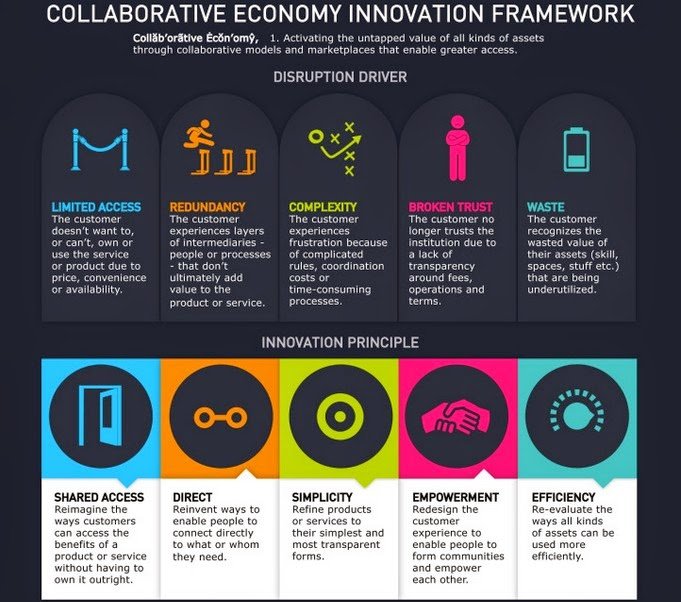
This is perhaps the key to defining what may be called a marketplace economy. Car users renting out their cars, people renting out their rooms – and many other such assets that some may own while a majority may not – enabling a platform for access and subsequent income. Renting, swapping, subscribing, reselling, donating and lending these assets is what a typical platform in a online marketplaces would engage in.
The online marketplaces is built on trust. Take Airbnb, where you trust strangers with your housing, or are housing at a complete strangers’ – it goes both ways. The same applies for the Uber driver and the Luxe Valet (A parking service!). User-based review and rating systems have also become new indicators of trust instead of advertisements and other media campaigns.
This is the most crucial aspect of this economy. The need to build technology that can automate and regulate the fluxing nature of online marketplaces businesses is felt everywhere – companies are paying top dollar to app and other technical software developers that can provide these services.
One of the few critiques of this kind of economy, apart from the fact that it’s not as popular as yet. Since many of these companies employ contractors on a need-basis, retaining employees effectively is not something they can guarantee. Indeed, many delivery services like Saucy and Sprig face this issue – their delivery men simply don’t have that much incentive. Nicknames like the ‘gig’ economy, or the freelancer-based economy have arisen as a result.
On the flip-side, it allows for more flexibility as regards working hours for the service providers – and saves time for consumers also, since most of these are timed services. For example, people who were previously driving cars and are now using services like Uber – treat this time as downtime – as it would be for shoppers and the like.
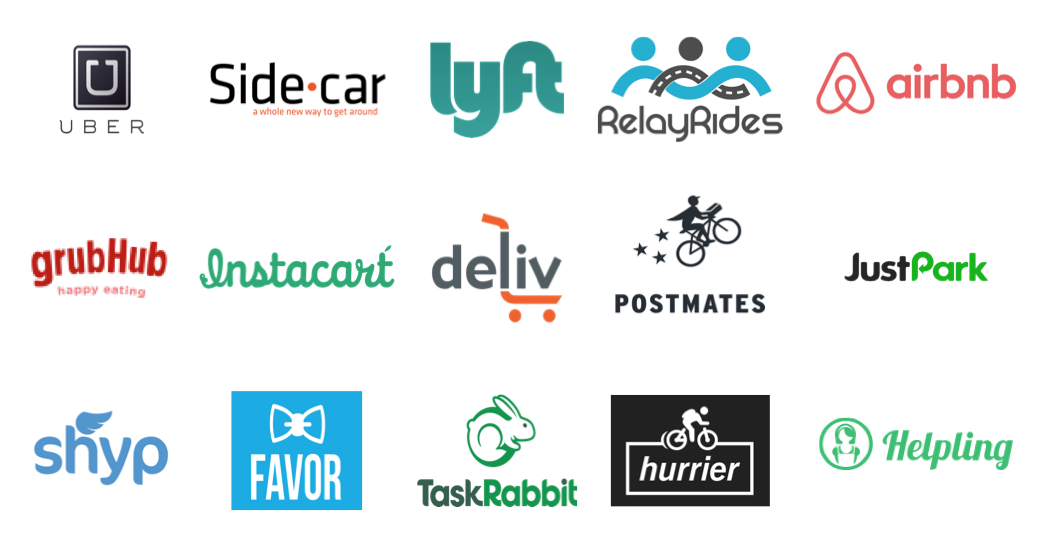
The Online marketplace works within several sectors now. It’s helpful to understand how diversified it can be in today’s multi-access based world –
1.Hospitality and Dining: Airbnb, Feastly, Saucy etc.
2.Automotive and Transportation: Lyft, Uber, RelayRides etc.
3.Retail and Consumer Goods: Tradesy, Poshmark etc.
4.Media and Entertainment: Wix, Spotify, Soundcloud etc.
These sectors are important because it has been observed that different generations of consumers hit up different markets, and preferences may shift accordingly.
The marketplace economy is quite intrusive. By playing on mechanisms and augmenting their businesses with analytics and powerful platform-based wizardry, they experience exponential growth. They also tend to operate in sectors that have decidedly not faced any innovation and where growth has been generally stagnant.
Airbnb’s $10 billion valuation has surpassed Hyatt, an industry giant operating within the conventional paradigm. Uber itself, with its attributed $18 billion has far surpassed other names that have all but faded: Hertz and Avis.
Some sectors, such as the on-demand laundry sector has simply exploded, creating a surplus of such businesses going neck to neck against each other in fierce, fast competition. This economy creates standards of its own – growth is no longer measured in decades but in years, and in some cases even months (Slack, for example).
The marketplace economy also operates on a different style of consumption. Here, commodities are exchanged, leased, traded for and shared as opposed to outright purchase. Time is the main currency here, with the on-demand’s fascination for all things ‘instant’ and ‘at your doorstep’.
If many startups earlier arose out of a need, or necessity to address grievous problems within sectors – that is no longer the case. Every quarter, fundraising rounds simply amplify their previous investments and the fast promise of growth even attracts pleasure and luxury-based ventures with the same premise.
The sectors that faced maximum disruption was the food delivery industry, the transportation industry, logistics, Home Services, followed by smaller sectors such as beauty and – because of the internet of things (IoT) model of development – healthcare.

The marketplace economy has changed the nature of work itself, with its advent. Earlier, points of control followed the singular model, where one huge command center would control many international arms, with relative autonomy for the branches. Many new businesses however follow the global model, which is a global model with local extensions – seamless sharing of all information enabled by technology. This is not limited to sharing, but working itself, with growth driven by highly calculated, autonomous calculations in the form of Business Intelligence.
As a result, data banks, big data, social media roundups, data mining, business analytics, and cloud computing – all have seen an immense increase in terms of services rendered – be it for startups or enterprises.

Transactions are also shafting toward the digital – the rise of ecommerce based companies signals that – along with companies that make these transactions secure. The value of digital currency is immense, along with the purchasing power one has in terms of international access – space is immensely compressed due to hyper connectivity.
The direct impact also falls on the types of workplaces coming up. Startups and small businesses, while transient in their capacities, are rising in number. The need for independence and flexibility is visible even here, as they try matching their inferior manpower with superior technology and new models of working and experimentation.
2015 saw something of a decline in these numbers as concerns the young population – however, the older generation with its capital reserves are delving into at least beginning their own businesses. The Kaufmann Index suggests that 500,000 businesses were started each month by adults in the U.S. – a staggering number by any standard. More than a third of the U.S. workforce is employed by these small businesses and startups – also another Kaufmann statistic.
Small businesses also depend a lot on social media etc. due to their revenue standards, for marketing and other such. Thus, the freelancing marketing industry also grew tremendously on the back of this economy, with services such as content to website design to market campaigns being entirely outsourced for a temporary period.

Legislation hit the marketplace economy in a mixed manner this year and the last – with Airbnb facing a charge that said more than 72% of its rented sites were violating some law or another – and Uber itself has had to mobilize their dedicate user base in order to strong arm officials across the United States. The journey has been quite successful, however, as many states, while agreeing to regulate Uber’s activities, have given it quite a free reign in their landscape – this started with Illinois in January 2015. Now, 22 states have already passed ride-sharing legislation – even the law seems to move fast into action.
Similar efforts are being made by Uber worldwide – and do in fact, indicate some sort of precedent. The fact that the marketplace economy is here to stay, and whether a compromise will be reached between legislative borders is anybody’s guess. Some governments are lenient while others stubborn. Singapore has emerged to be quite a player for the online marketplace economy, what with its dedicated coalition – and even Europe swings into action with the U.K. and certain E.U. countries making collaborative efforts to usher in the new.
This year will see a continuum of such legislative activities through the world as the new methods of doing business become more pronounced.
We call these certain predictions shots in the dark, given that the sharing economy’s still in its volatile state. Businesses topple overnight, or ascend to become unicorns with the same speed – the unpredictability of innovation can only be contained by the entrepreneur’s willingness to experiment – and the entrepreneur is ready to do just that.
Such predictions may also qualify to be educated guesses.
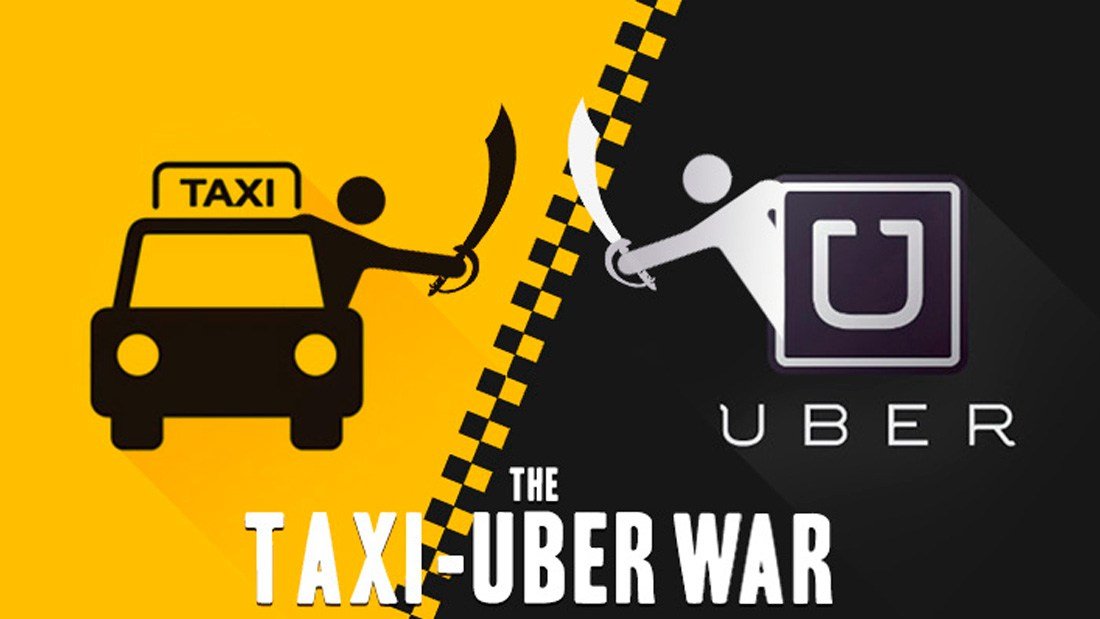
While companies like Uber (few as they are) with their gigantic valuations can control larger areas by immensely diversifying, the tactics needed to keep them smoothly flowing are quite strenuous. The focus cannot be narrowed towards expansion – it is only fitting that revenue should not take the back seat, given all the failures (big names like Washio and Homejoy toppling).
A hyperlocal focus and stronghold is more beneficial, to sustain growth and redirect finances into improving services and cementing the brand-name. A brand that has benefitted by this is Grab, restricting its services to the Asian region for a long time – as compared to Uber’s significant defeat at the hands of Didi Kuaidi in China.
Collaborations are also important, rather than diversification in case your resources stretch too thin – signified by Lyft and Ola planning to combine forces.
Deliveroo is another great example for someone who’s not stretched themselves too thin, although their legislative issues still plague them.
This has been one of THE key problems as to the dissolution of on-demand companies that initially make a killing. Not having a strong employee-benefit program will not generate loyalty, despite their freelance nature. Working them overtime and not letting them see adequate revenue for short term gain will would severely in the form of attrition and lawsuits. Check Grab’s program, if you don’t believe it – and you’ll see why it’s better to make your company a pleasure to work for.
Thus, legislative affairs being on the rise only signal more clashes until legislative changes followed by changes in the ways in which businesses operate take place.
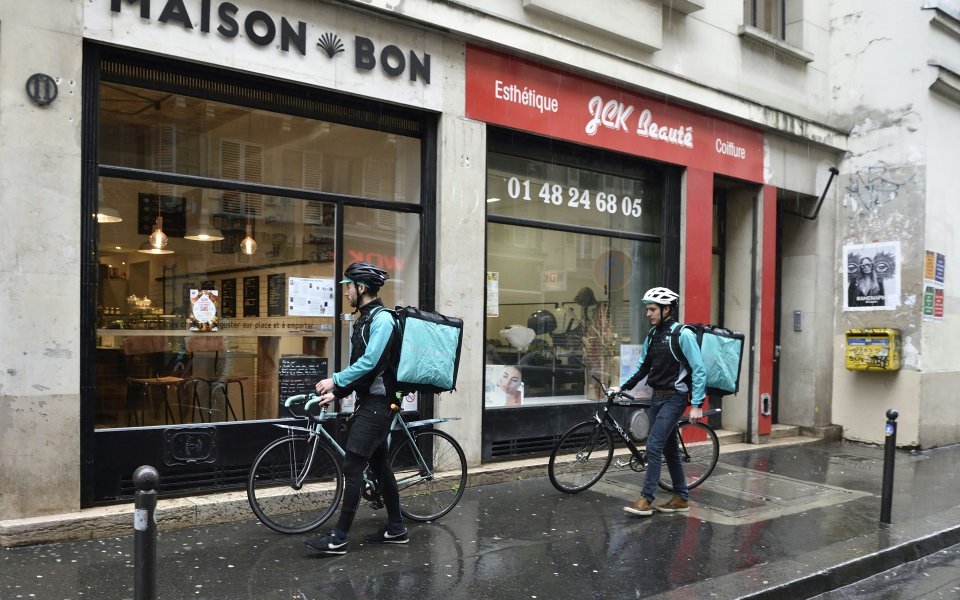
If you’re venturing into this sector, you need to be pretty adventurous. With Instacart barely holding the fort as a food-cum-grocery delivery venture at $2 billion, more and more players flood the market. Amazon’s Hot Wheels service and UberEats have already forayed, and these companies have a significant treasury. It will become tougher to consolidate your share the coming year.

We were leading to this point with all the rhetoric above – indicating that integrated work environments will become more common. Outsourcing professionals will become more commonplace, as the reduction of costs is glaringly obvious. Many organisations will make highly analytical, calculated decisions and over that, integrate much more technological apparatus in their daily workings.

Many companies have already integrated a fair bit of autonomous support into their systems. Chatbots, intelligent platforms, self-driving cars, automated cashiers and tellers – all these are already being used on some scale. The advent of AI with ventures like Deepmind promises to create yet another level of business and administrative tech-based intelligence; it is only a matter of time.
This year, we also saw our fair share of startups that were centered on solving social and administrative problems instead of being purely profit-motivated. We covered some of these, like Braincheck and Zipline (blessings in the form of aid in the healthcare industry) – and yet others like Peerby (sharing commodities) and SnappCar (car sharing – Neatherlands) point out towards sustainable methods of operation in the same market.
We foresee this trend to increase, and also support co-habitation in terms of business growth instead of simple cutthroat competition.
The advent of Niche has really hit with this year and as a marketplace economy trend in general. From getting your dog walked to simply specializing in data mining – specialization is your friend. An Uber for Drivers? Sounds good. A startup that sends planned diets with calorific specifications – already done. There’s a lot that has been looked at, and a lot more to be found.
Luxury and other such versions of the same brand will also thrive as more agents prepare to spend in the e-commerce sector, and the smartphone becomes a necessity.
As can be anticipated, it is a very exciting moment for the online marketplace industry. The sector will surely face tremendous disruption with every new technological innovation.
We consider it our duty to inform potential clients of the perils, and advantages to be found in every sector. We also consider it our privilege to work with those who are interested in augmenting their ideas with powerful technology. We are eager and only too happy to walk you through the possibilities of these measures, targeting key concerns in the sector itself, so that your business can bloom with minimal hitches.
All the technological solutions mentioned above – in the realm of big data, analytics, mobile app development, the engineering of virtual architecture and so on – can be found by working with us, in the most cogent manner possible. We will be honoured to help your venture disrupt the marketplace Vertical – all you need to do is take the first step, and open a dialogue with us.
